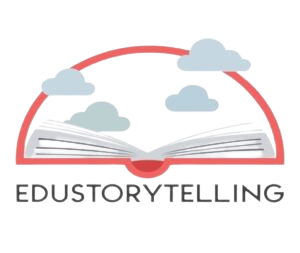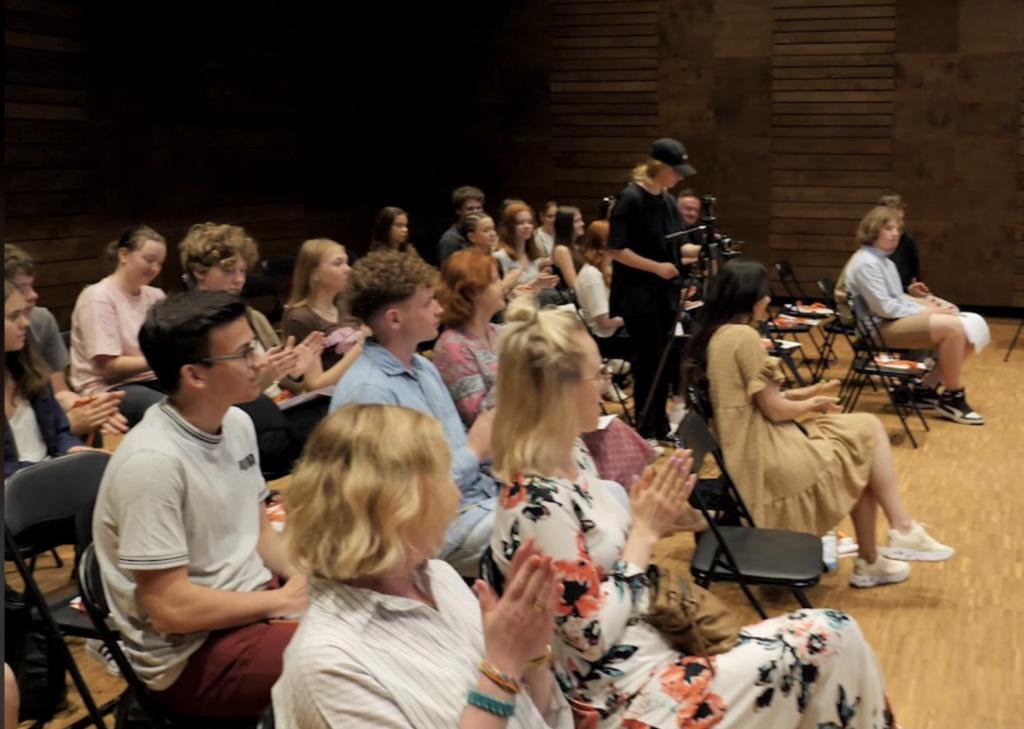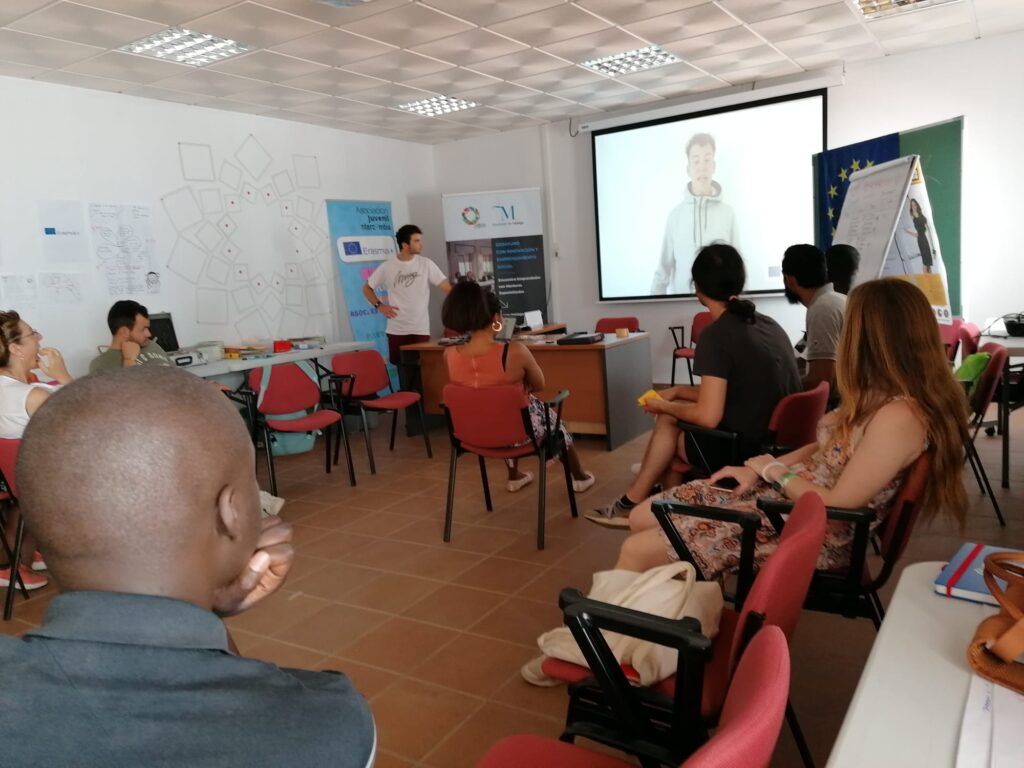
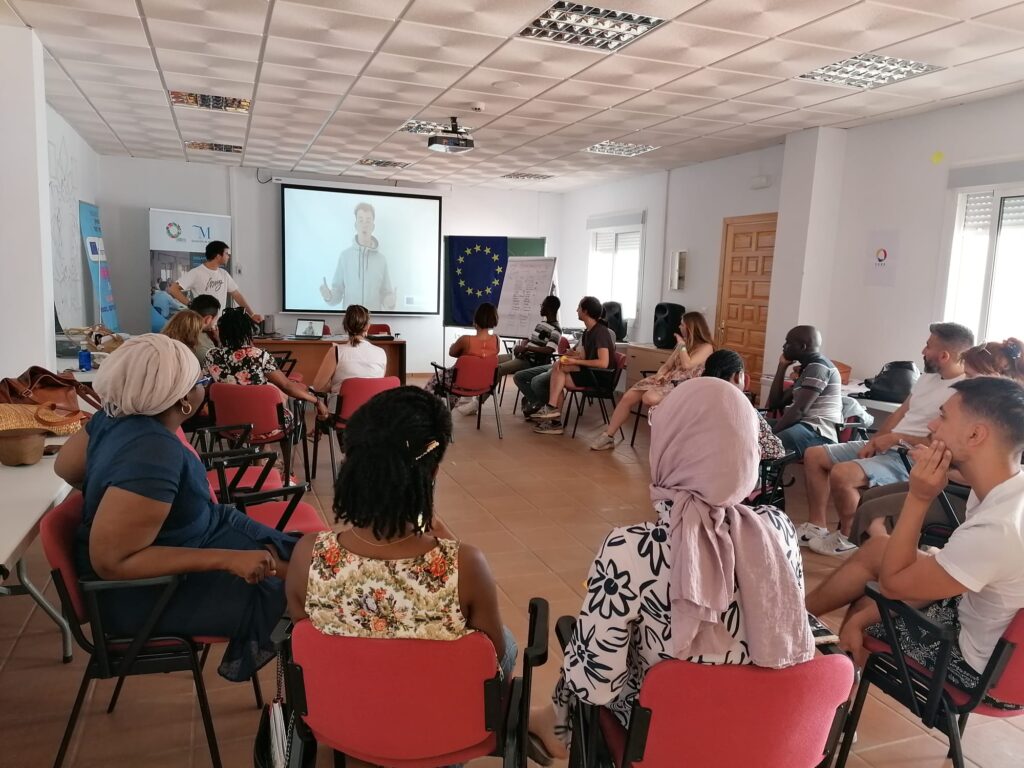
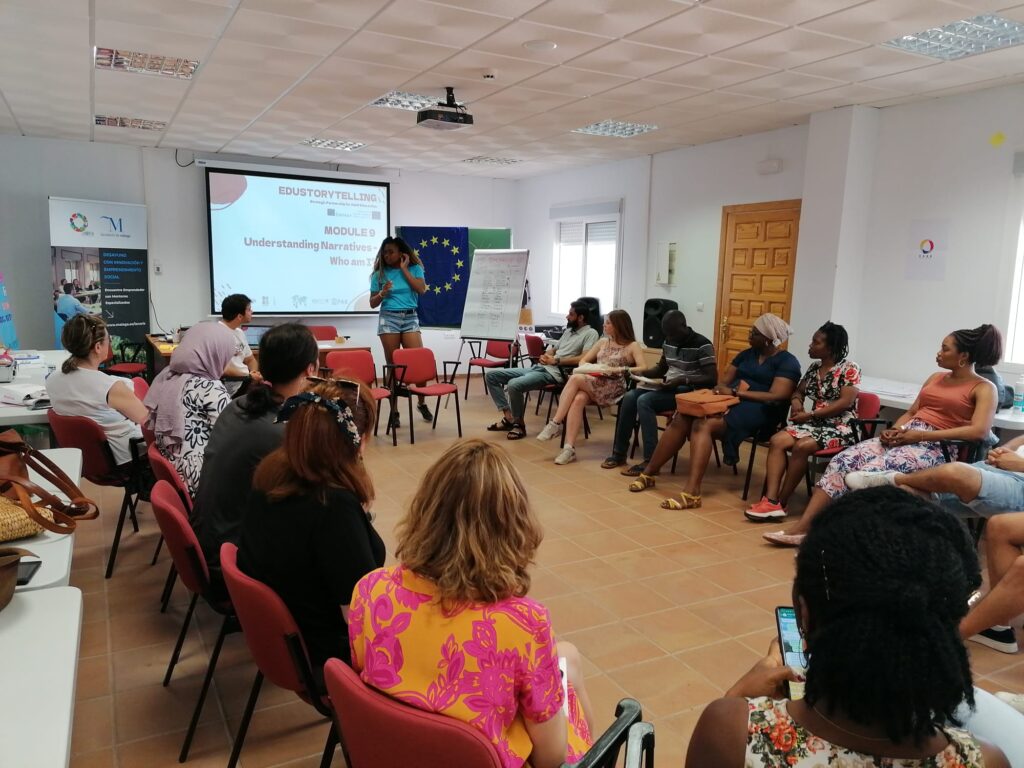
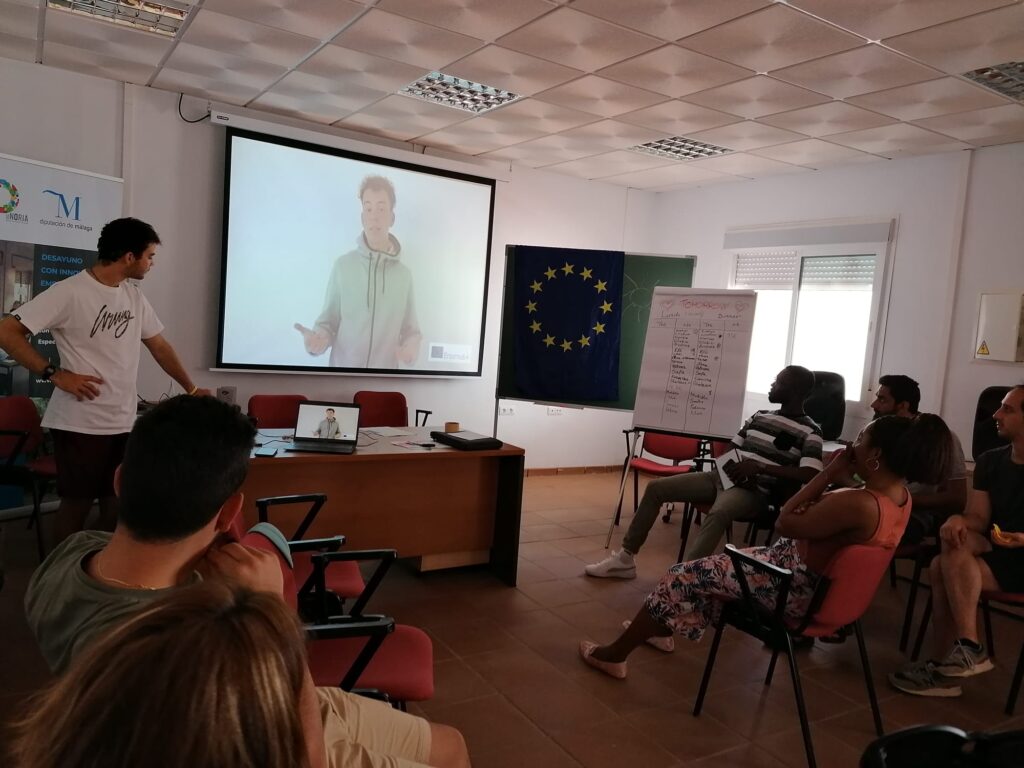
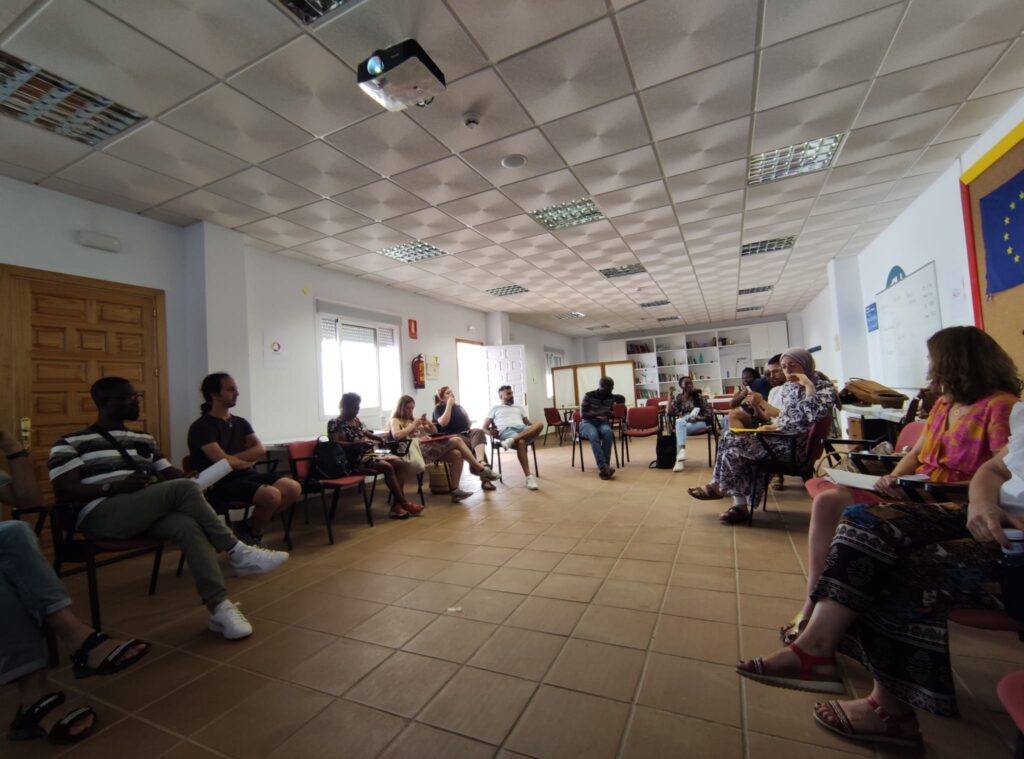
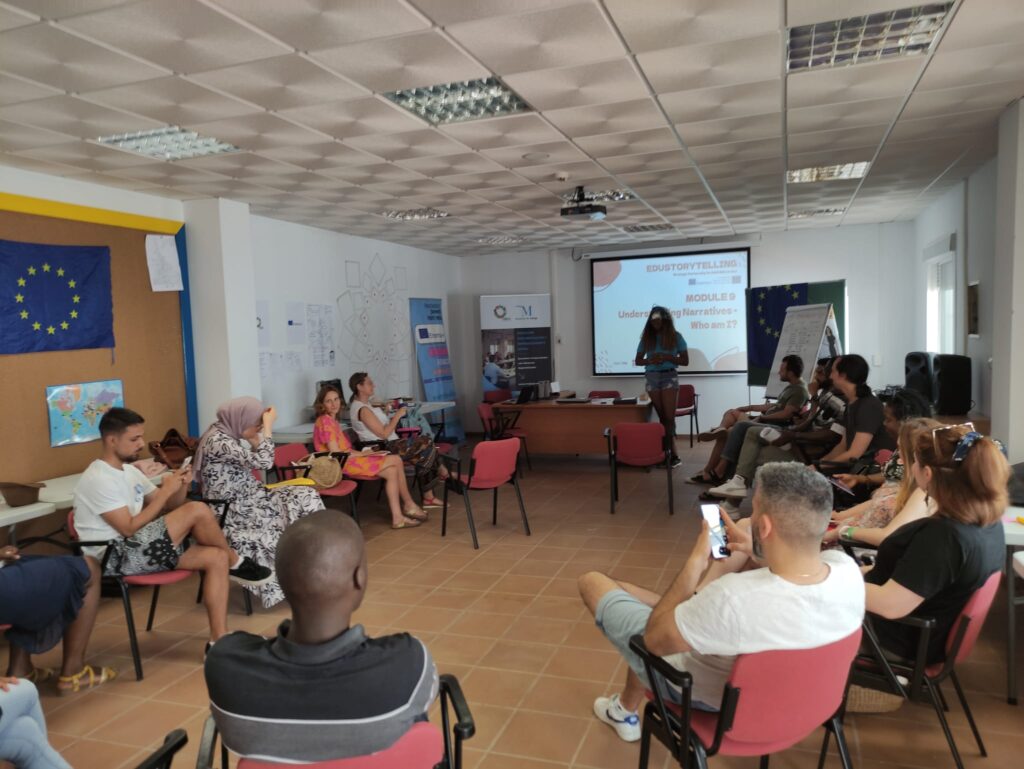
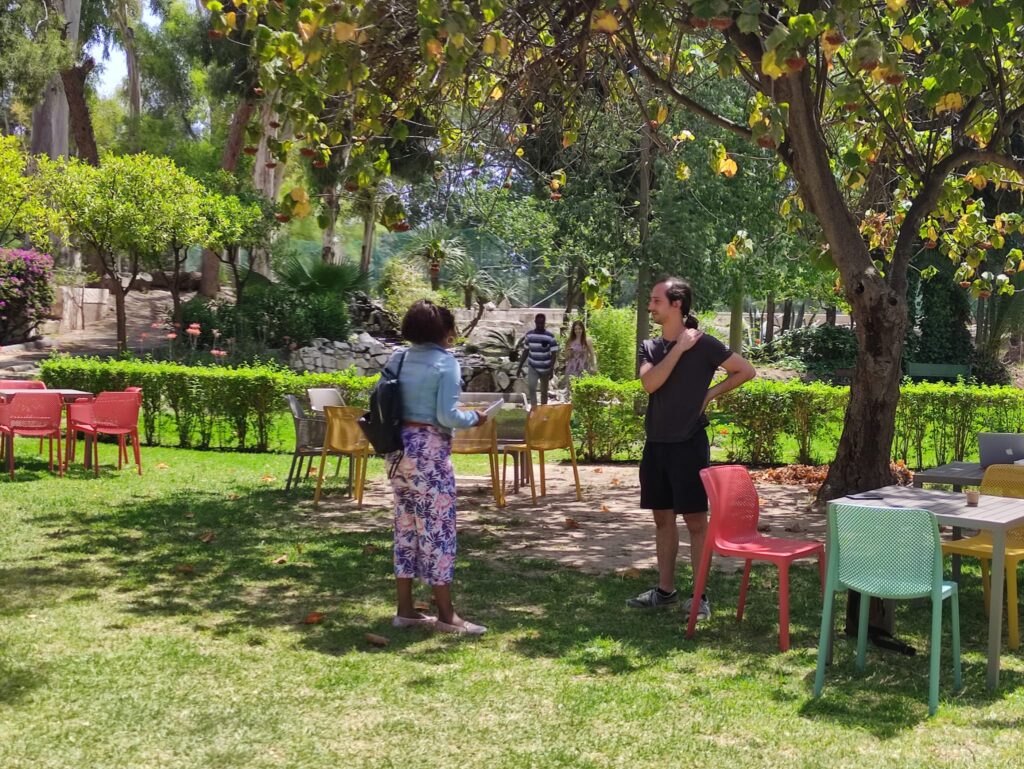
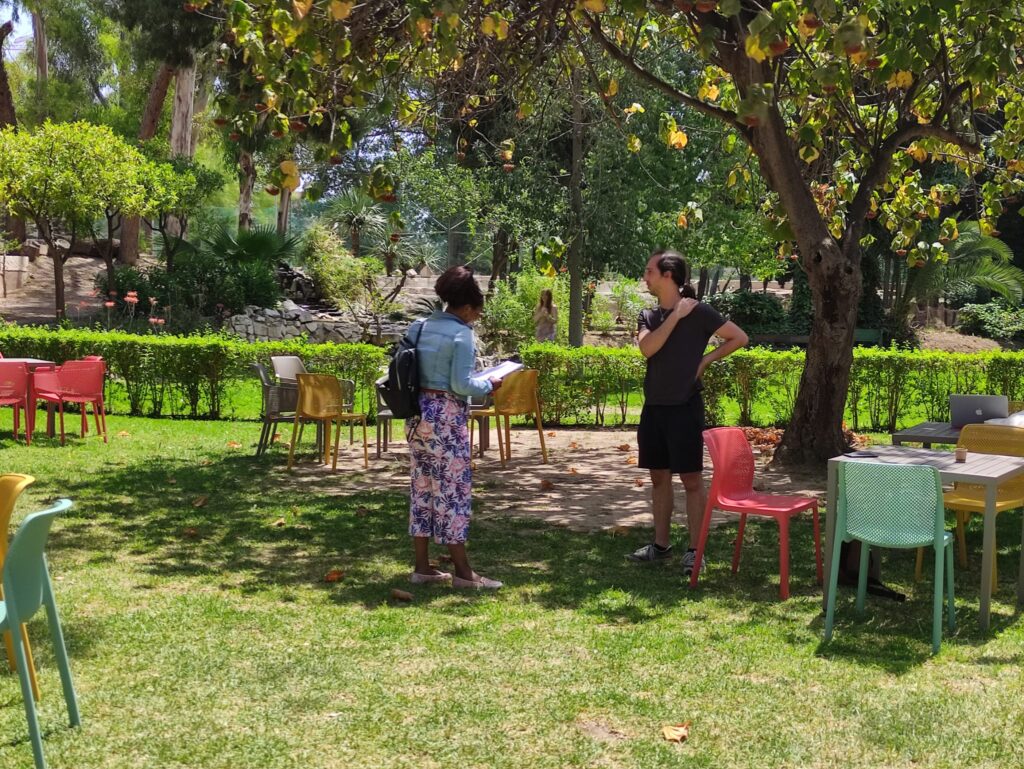
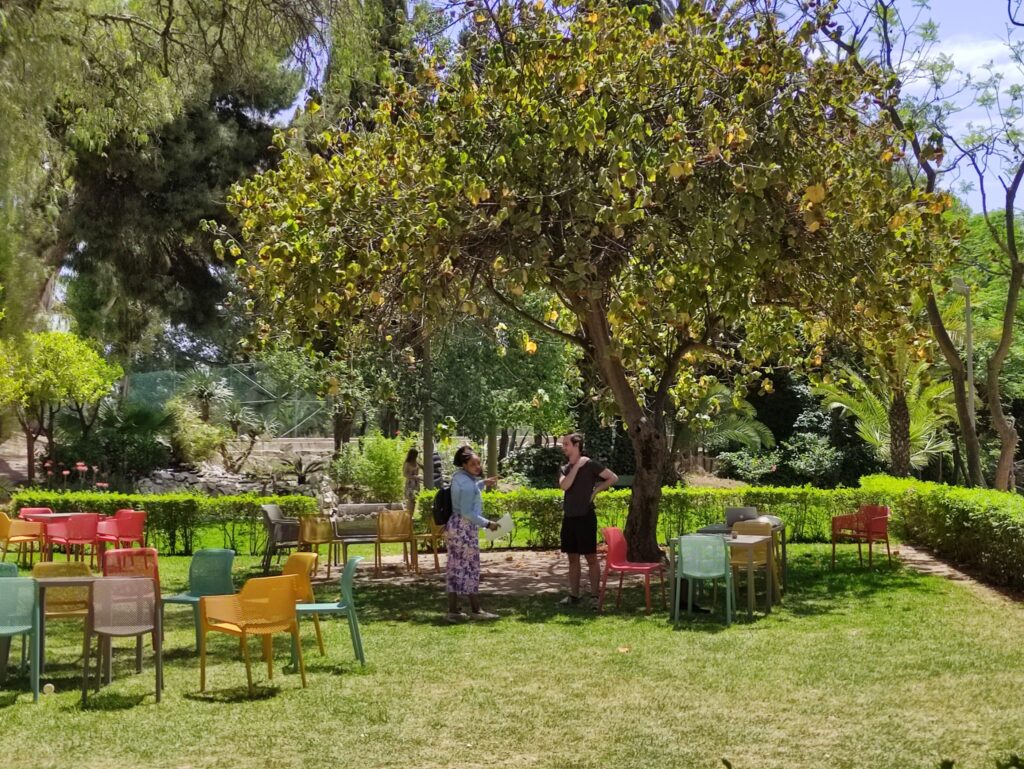
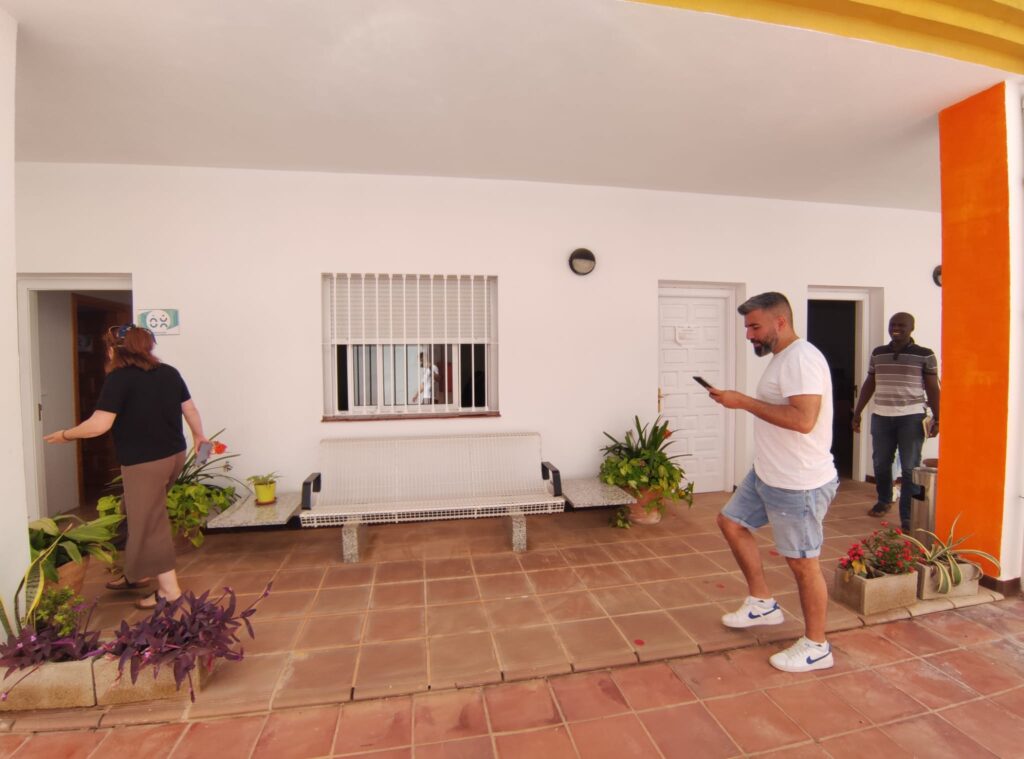
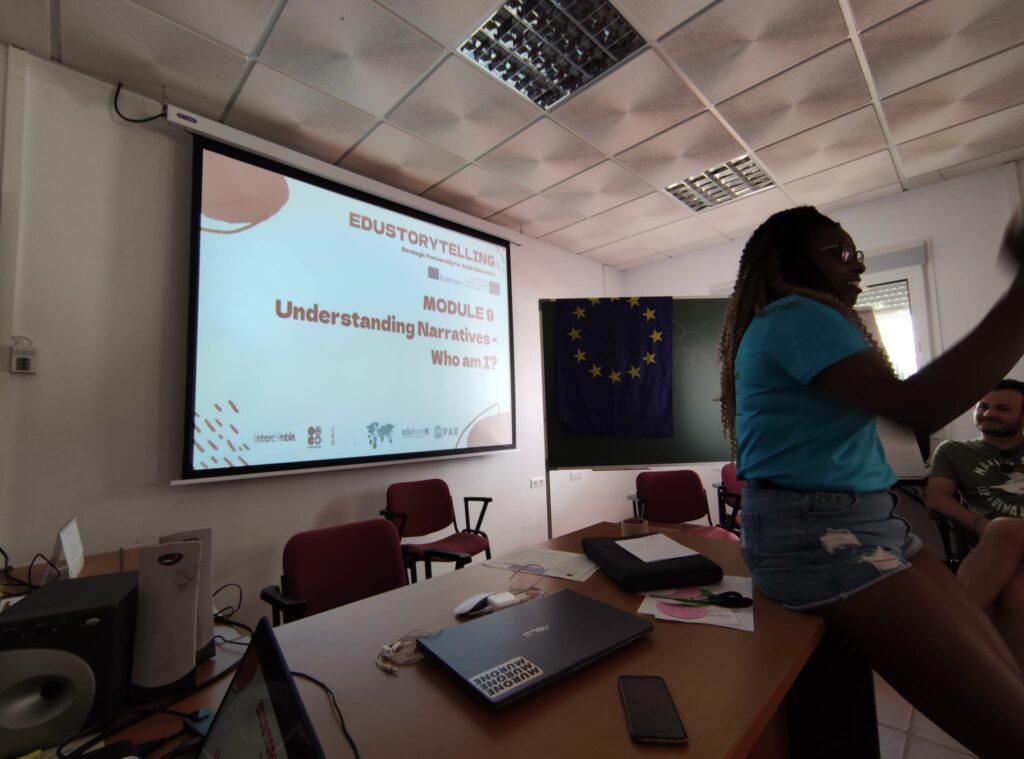
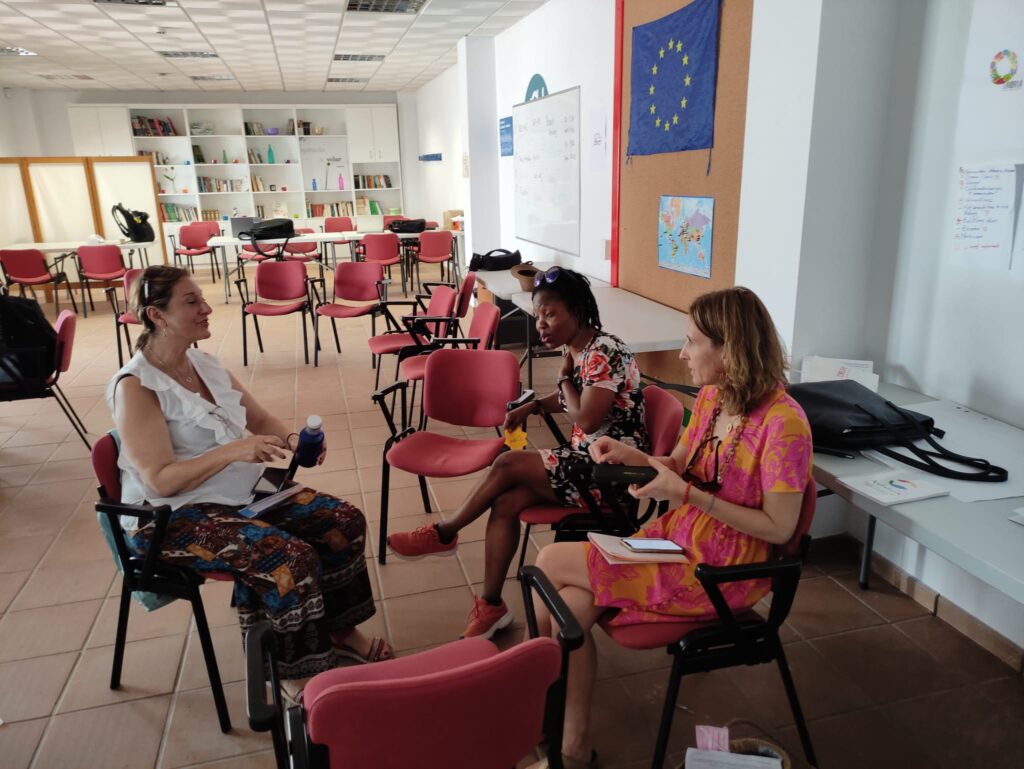
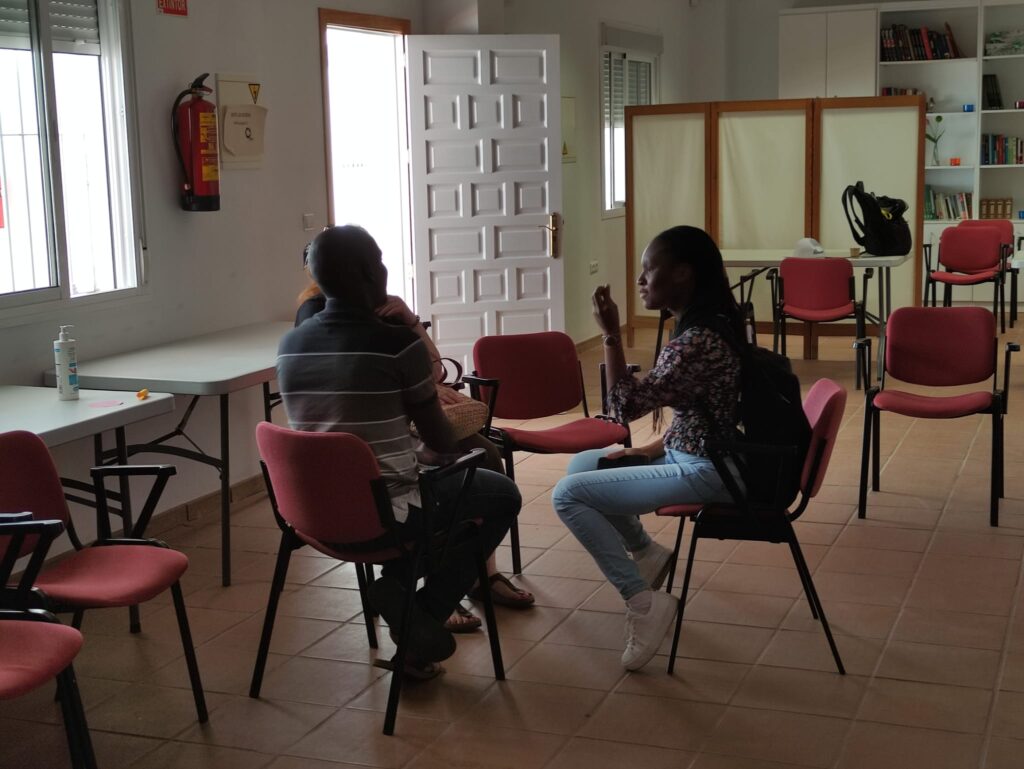
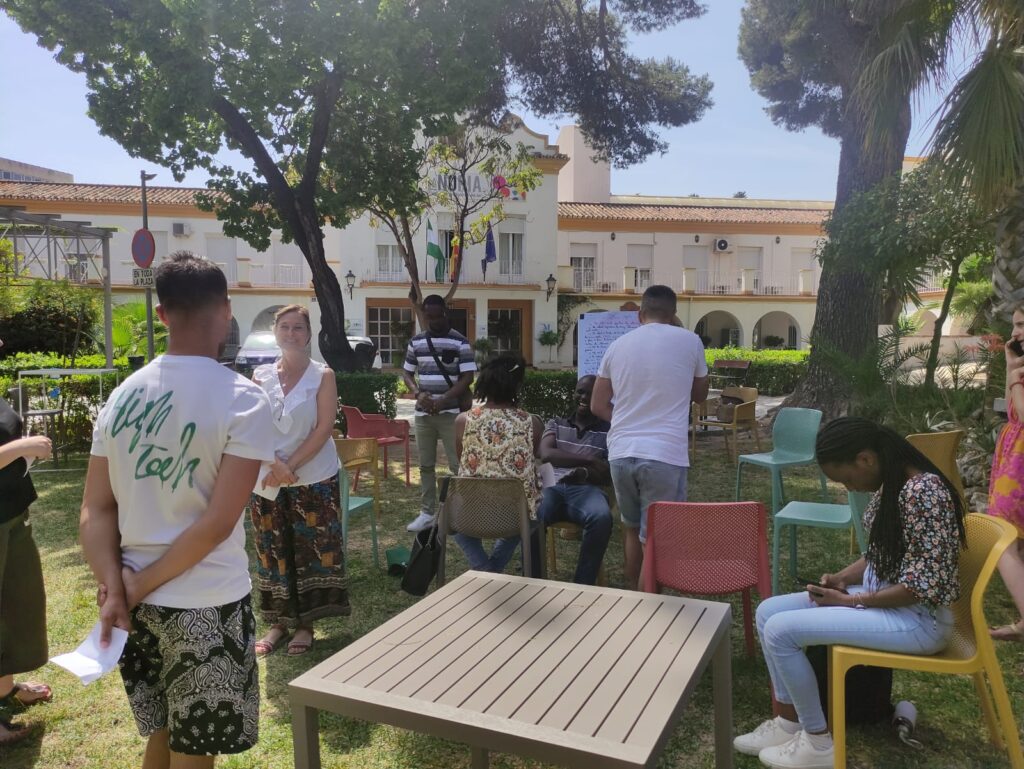
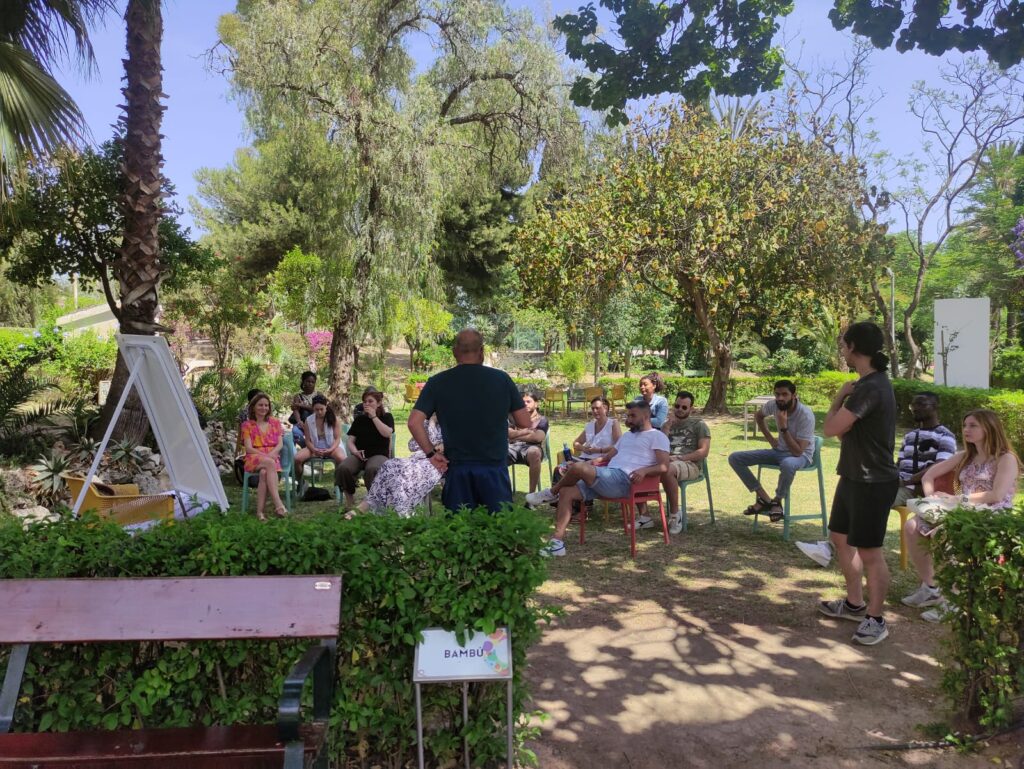
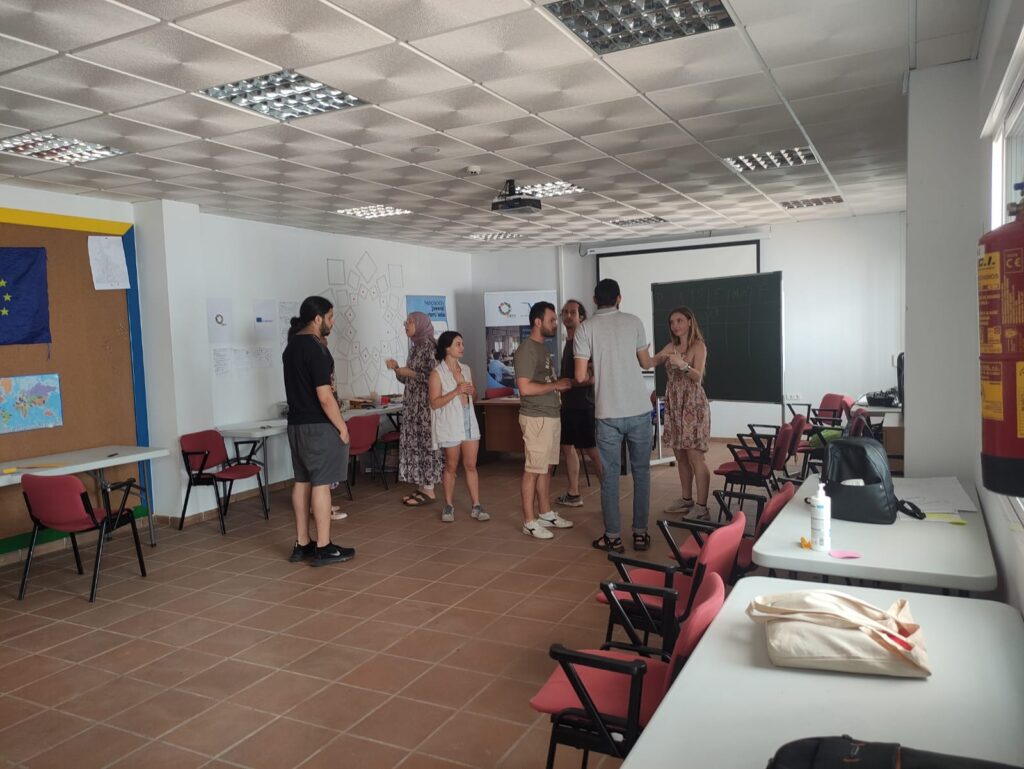
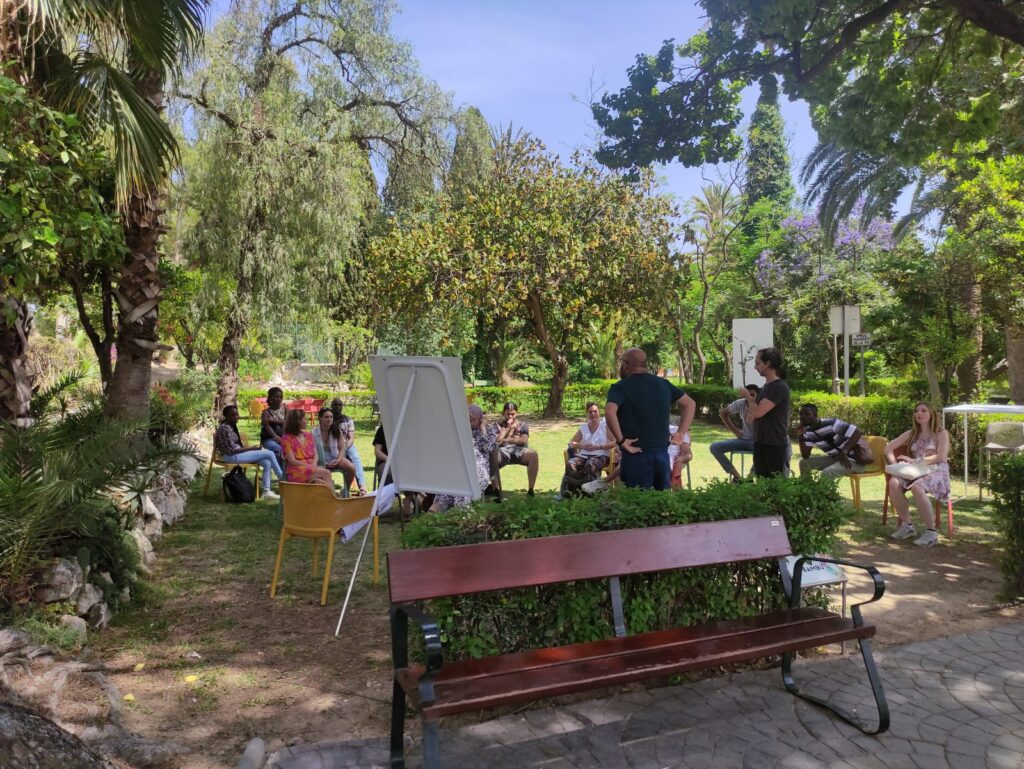
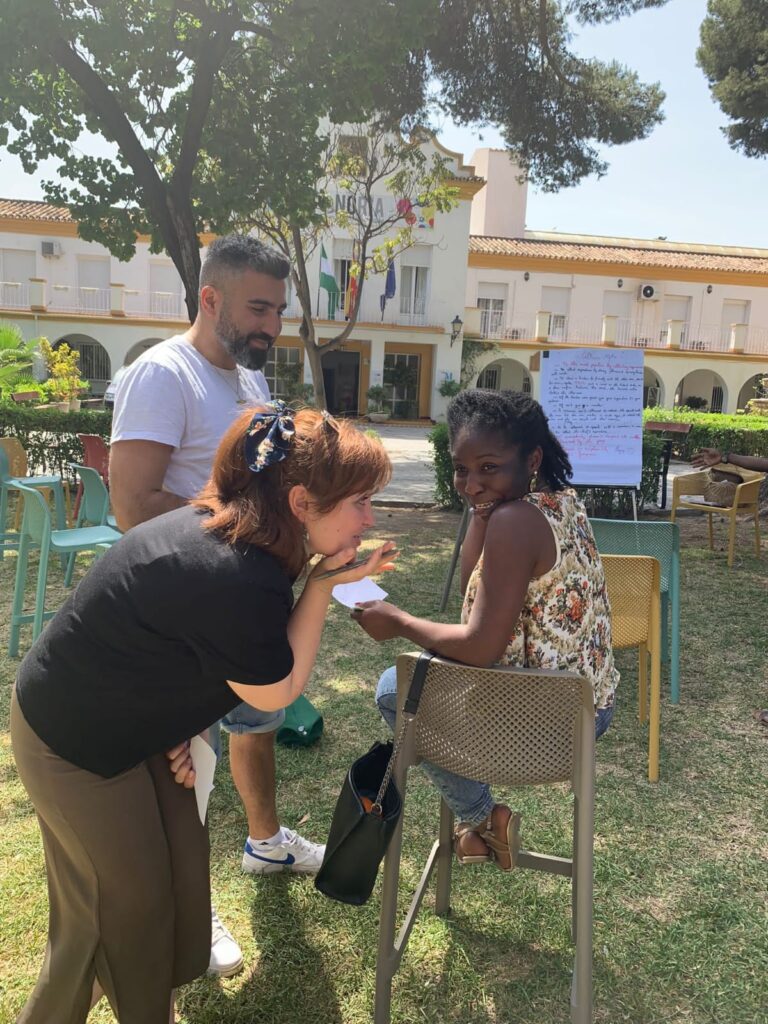
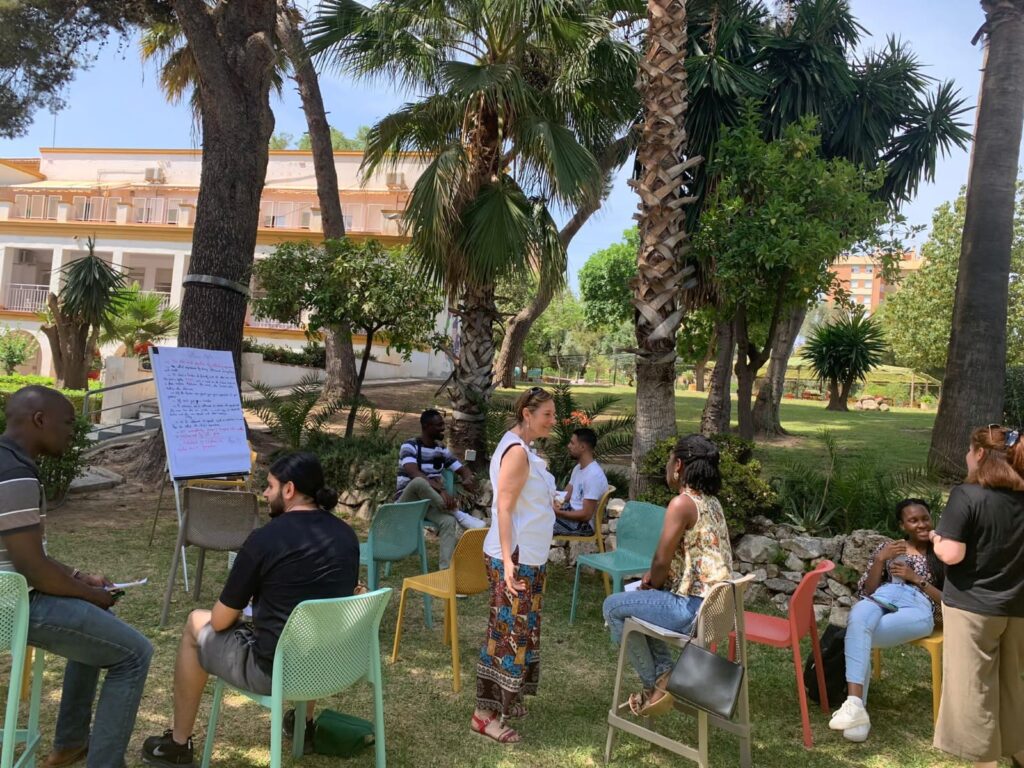
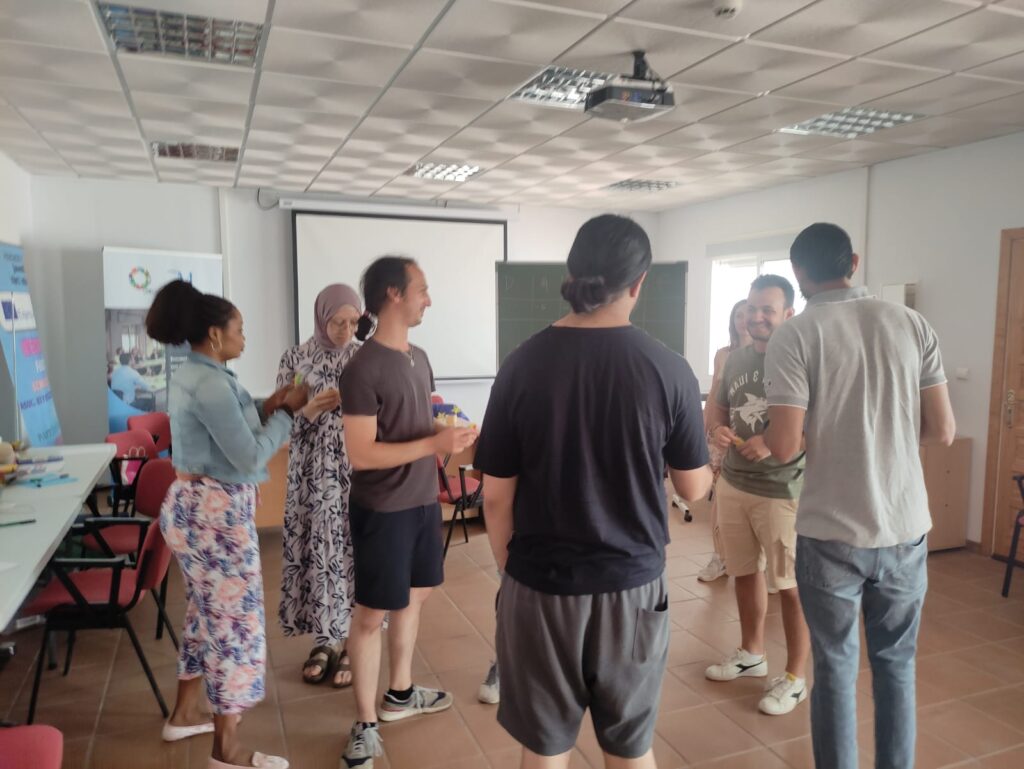
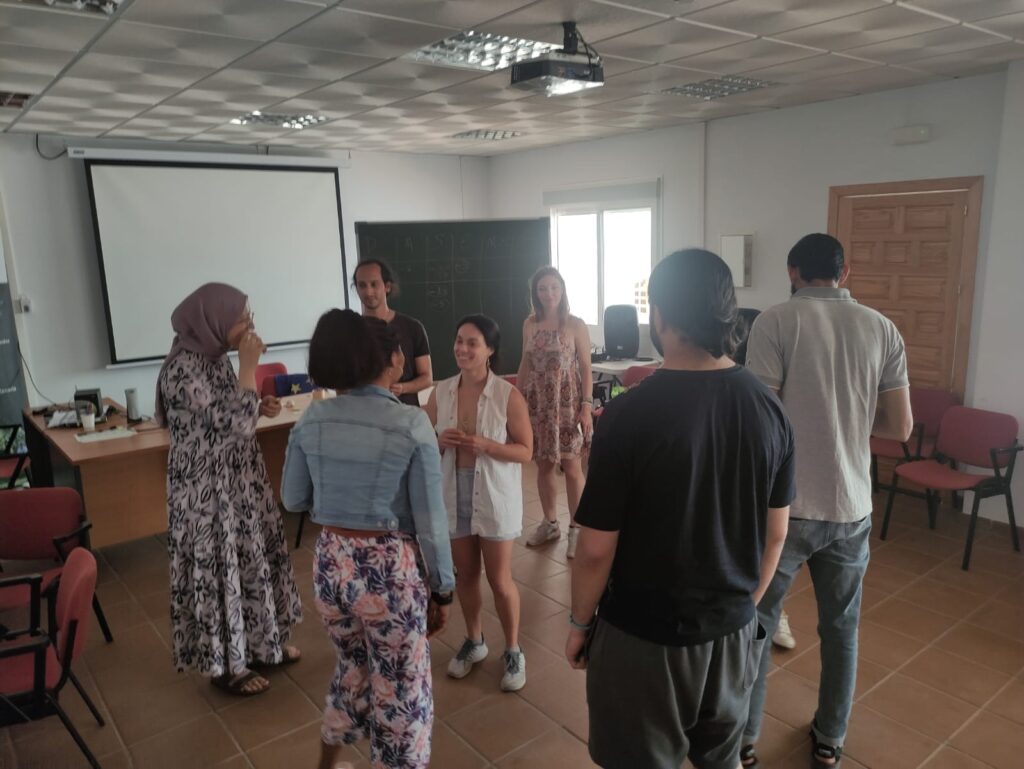
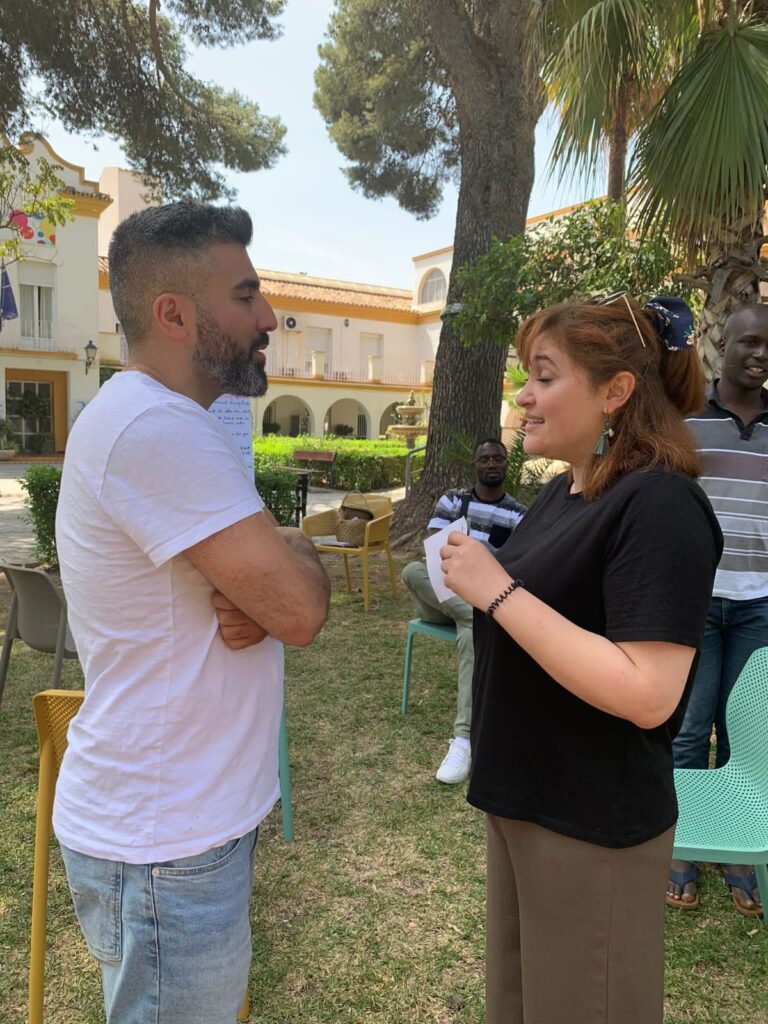
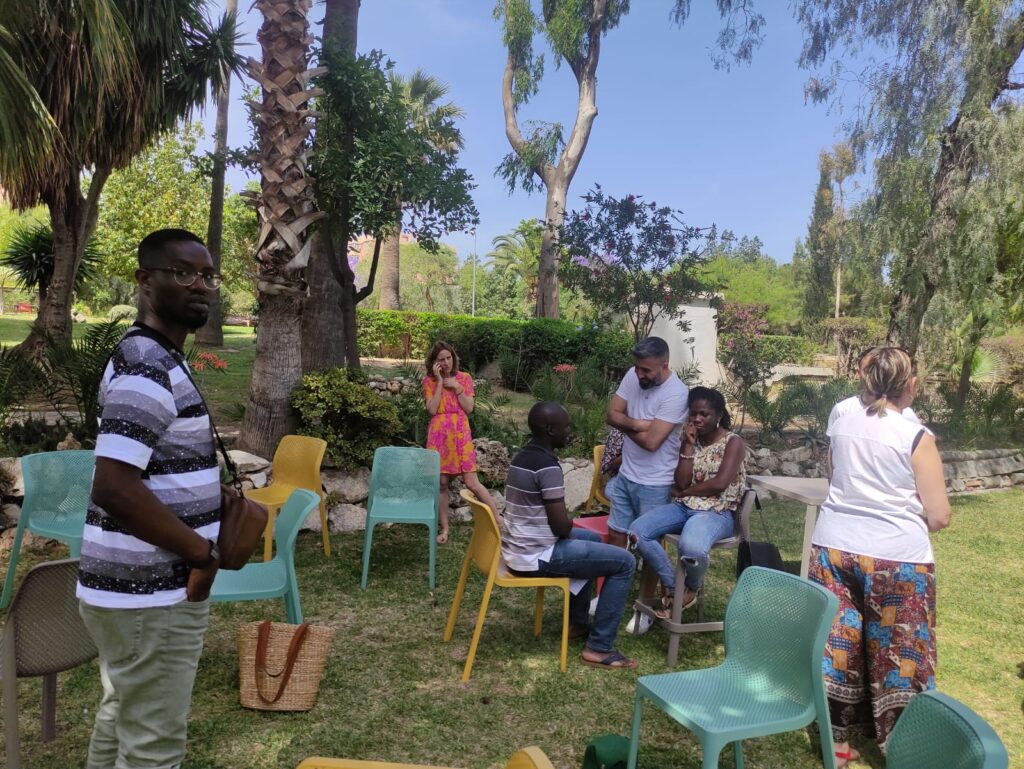
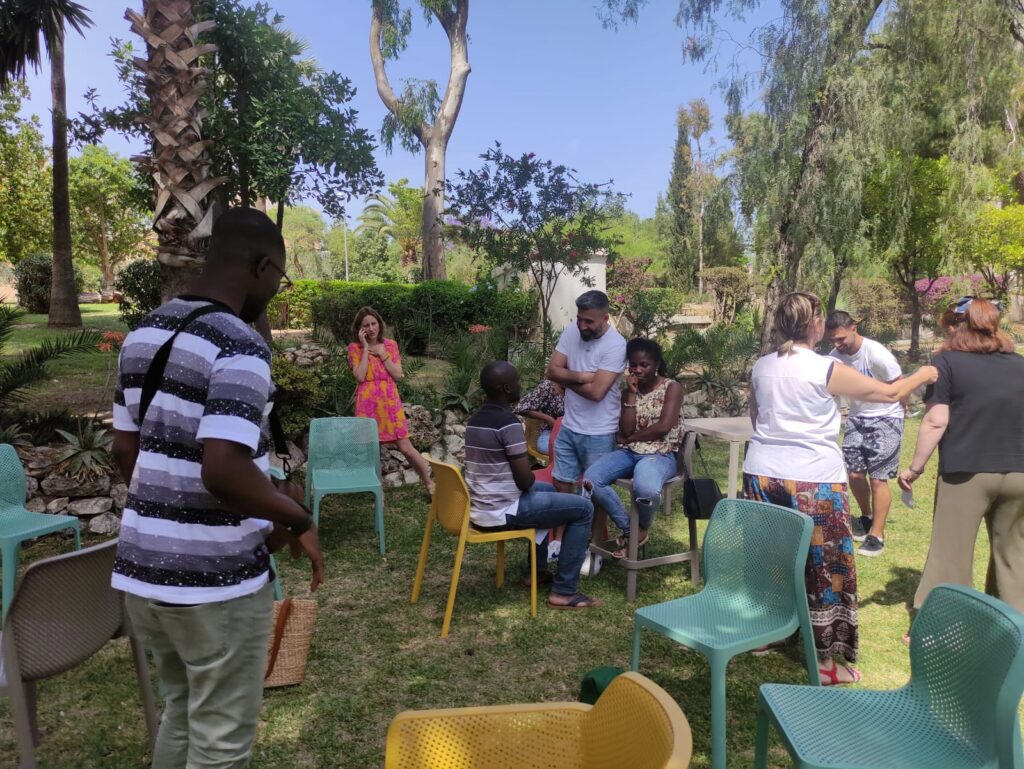
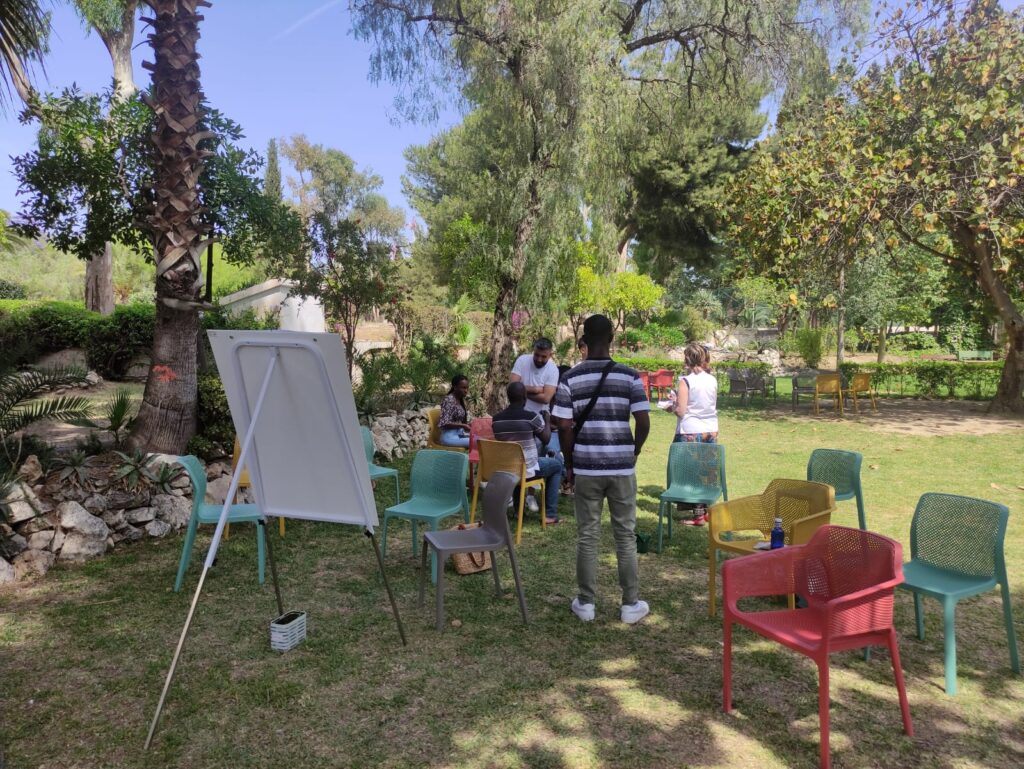
The multiplication event of the Edustorytelling project has been developed at the Ferris wheel in the framework of an international conference with young educators from different European countries who are on a temporary stay in Malaga in collaboration with the University of Malaga and the delegation of education of the Junta de Andalusia.
It is staff related to adult education from different public and private organisations of European bodies.
The organised day was aimed at presenting the work conducted in the Edustorytelling project developed in the Erasmus consortium of the K2 project developed by our entity in collaboration with other European entities.
We have started the day with the welcome by the responsible of the Spanish national agency of the Erasmus plus programme in the province of Malaga, Ms Esperanza Barrios, provincial coordinator of the organism that coordinates, manages, and implements the Erasmus programmes in the province of Malaga.
In her presentation she especially valued the work and the manuals that we are going to develop as they were previously presented in a meeting prior to the opening day in which she highlighted and valued the quality of the training platform, as well as the developed manuals that have been translated into Spanish which implies a high applicability.
In her opening speech of the presentation day of the different tools developed by the consortium of partners in the framework of the Edustorytelling project, she highlighted the value and quality of the tools developed in order to enhance and increase the employability of people with fewer opportunities, especially young people and adults who participate in the adult education system that the Andalusian Regional Government and its Department of Education develop in our autonomous community.
After the presentation of the person in charge of the national agency in the province of Malaga, we have continued the programme of the day with some dynamic activities of interaction between the participants to make their names and origins known, as well as the purpose of their participation in the development of this day.
At the same time, we have provided a space to get to know and present the public and private entities represented by these participants to establish links and create networks of contacts to improve the actions of our activities.
This exercise was conducted by means of a non-formal education dynamic in which the participants developed a presentation of their associations in which they shared their areas of work, their energy, their fears, their origins, and their future projects.
After this dynamic of presentation of the participating entities, we proceeded to present the manual developed by the consortium of partners of this project by the hand of Dayana and Andrea people who have participated in the development of different elements of the project.
we have shared and presented the manual of activities and the dynamics that compose it, and we have proceeded to implement two of the techniques presented in the manual to be able to put into practice and receive evaluation and feedback from the user experience of the manual.
After the implementation of 2 of the techniques in the manual, we shared a space in which to get to know the manual and assess its usability in day-to-day work with adults at risk of social exclusion in the education system.
After a lunch at the facilities of la Noria in which we have continued sharing tools, work methodologies and work experiences in the framework of adult education, especially oriented to people with fewer opportunities, we have continued with the work programme, this time presenting the second manual, DigiStories Guide.
Again, with the help of Dayana and Andrea, we shared the contents of the manual, the tools it contains, and we put two of them into practice with the idea of receiving an evaluation and feedback on the usability of the tools presented in the manual.
After a coffee break, we continued with the presentation by Rocio Rosa and Pedro Muñoz of the online platform and the tutorial videos that the consortium of partners who have taken part in this project have produced, the multimedia contents produced so far by the participating partners were presented, as well as the learning and support materials for this module produced by the partners.
we also had the opportunity to present the self-assessment questionnaires of the learning acquired by the participants on the on la in platform to be able to see and verify that the learning has taken place.
We ended the day with an evaluation of the day and an overall assessment of the project conducted with the two guides and the online platform that they have developed, which was positive and valued for the quality, usability, and richness of the tools to be used and implemented with people with fewer opportunities in the world of adult education,
